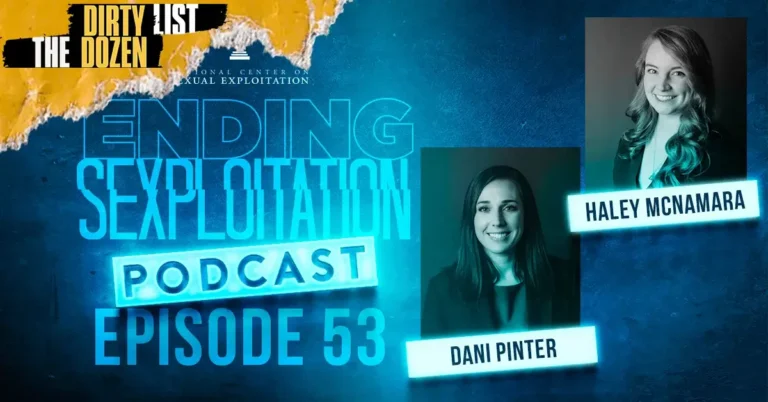The following is an excerpt from The Boston Globe about pornography on EBSCO research databases. EBSCO was included on our 2018 Dirty Dozen List due to this lack of filtering on their databases, and the potential for children to be exposed to pornography while at school. NCOSE is continuing to research EBSCO databases and reports significant progress in the elementary and middle school databases but still finds some problematic material in high school databases. We hope EBSCO will continue to make progress on this issue, and NCOSE will continue to monitor their databases to ensure every child is safe.
Click here to read the full article
“EBSCO is under fire from parents and conservative activists who say its databases for schools contain hard-core pornography. Schools in Colorado have stopped using EBSCO, while a parents group there sued the company earlier this month…
EBSCO and its competitors have huge collections of published content, from popular magazines to obscure scientific journals. Sometimes, though, inappropriate material slips through, or the archived documents have links that could lead young readers to pornographic content.
The companies typically use software filters to block inappropriate content or entire publications from appearing in school databases, while still allowing access to adults. Schools can also apply their own filters, but sometimes those don’t work if students access databases from home.
In fact, EBSCO had made recent changes to its data collection that impressed one longtime critic. The Washington-based National Center on Sexual Exploitation includes EBSCO on its “dirty dozen” list of businesses, finding in the past that searches for such innocent-seeming terms as “7th grade biology” would lead to inappropriate content.
But in a test conducted just this week, executive director Dawn Hawkins said nearly all explicit materials have disappeared from the EBSCO database.
“The elementary school database was really the worst one 18 months ago, and now our researchers are finding nothing in the elementary and middle school database,” said Hawkins. “We did find some material in the high school database, but it really is a lot more cleaned up.”
Hawkins believes EBSCO was goaded by legal threats and the loss of some significant customers…
In a document on its website, EBSCO said it provides tools for schools to block specific publications that might be problematic. The company said it is also developing more powerful tools, including blocking articles on specific controversial topics, or even specific articles in a magazine while allowing other content from the same issue.”


